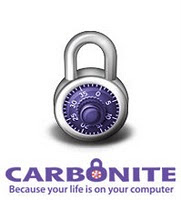Sure, Twitter might seem detrimental to writers, by dint of being a
colossal, neverending Procrastination Circus From Hell. This social network can indeed be extremely distracting, but like pretty much everything in life, it depends how you ration
it out. We writers have always been
highly skilled at finding displacement activities. Twitter is merely the new aiming-paper-balls-at-a-bin-across-your-study.
I've been on Twitter for over three years. I love the place and believe it does writers way more good than
harm. Here are 10 ways in which Twitter
is a force for good. Apologies in advance if any of these involve teaching you how to suck eggs. I’ll be using the
word “script” a lot, so if that doesn’t apply to you, please substitute for “novel”,
“journalistic article”, “poem” or “voodoo death sonnet”.
No tweet can be longer than 140 characters (unless you
employ the TwitLonger service, which arguably misses the point of Twitter, but
can occasionally be very useful for making points which simply need more
explanation). This basic rule obviously
forces tweeters to be economical with their wording. I often find myself writing a tweet and
discovering it’s over the limit. It’s
then a matter of editing it down, without losing the sense.
I do exactly the same for every single line
of action and dialogue in scripts. Briefer
is better. I’m also quite particular
about how my scripts look - I strive for them to be as clean and readable as possible - and so I hate ‘widows’ (a single line at the end of a
sentence, containing only one word) cropping up. Widows must die. Kill your widows. Hack at that script/tweet until it says what
needs to say, in as concise a manner as possible. It’s amazing how much a seemingly splendid
line can be improved by boiling it down or completely rephrasing. Thinking about it, it’s
probably not a terrible rule of thumb to impose 140-character limits on your script action lines.
2) COMMUNITY
Writers are largely solitary beasts. The process of writing, unless you're a sitcom duo like Jesse Armstrong and Sam Bain, is lonely by definition. Anything which fosters communication and
social contact can only be a boon, and Twitter offers a wonderful sense of
community. Obviously, nothing beats
meeting people in person, but I love the way Twitter allows us to
effortlessly keep up with acquaintances, friends and miscellaneous contacts,
with spending too much time doing so.
There are people I haven’t seen in ages, but who I feel like I see every
day. There are also good friends I’ve
made through Twitter, who I’ve never met, but certainly plan to (with their consent, obviously). It’s healthy for writers to form bonds
with other scribblers who actually understand what they do for a living, who
feel their pain when things go horribly wrong and can share information/contacts/pizza
topping preferences. It's also very healthy indeed to talk to people who couldn't care less about writing.
3) CHARACTER BUILDING
For the writer, Twitter can literally be a character-building
exercise. Your timeline probably
contains hundreds, maybe thousands, of people from various backgrounds,
ethnicities, lifestyles, political affiliations and so on. It’s all so very good for the writer’s brain. Vital fuel for the creative engines. We don’t get out much, after all, so
Twitter gives us a constant flow of wonderfully varied viewpoints and voices. Soak them in, like a sponge, just as you
would around a crowded pub table. Some of these
people’s sentiments, sentence structures and preoccupations may end up bleeding
into your work, even if it’s on a purely subliminal level. To my way of thinking, good writers need to
be actively interested in other people (same goes for Twitter users, even
though many celebrities provide exceptions to that rule, following a mere handful of people). The more voices you take on
board, the easier it will be to plant yourself in different characters’ shoes
with some degree of authority and authenticity.
4) SELF PROMOTION
Here, I’m not primarily talking about pimping your work,
although there’s absolutely nothing wrong with that in moderation - I never
quite understand why people get so self-conscious about their “gratuitous plugs”. I certainly plug my How To Interview DoctorWho, Ozzy Osbourne And Everyone Else ebook on a regular basis (look out, I just did it again), while mindful not to
become a spamaniac.
If you’ve done
something and want people to know about it, there’s no shame in making that happen. Twitter is way more than a mere forum for plugs,
however: it gives you a platform, just as a blog does. It gives you a presence, to use as you
will. People knowing you exist, and what
you’re about, is half the battle. For
me, the ideal set-up is having both an active blog and Twitter account - you
can, of course, embed your last few Twitter posts in your blog’s sidebar. When posting on both platforms, if you’re a
writer looking to be produced, I’d avoid writing anything which might make industry
folk think you’re mad, rubbish or disgruntled.
Or all three. But that’s a given,
right? Right? You’d think so, anyway. See Danny Stack's comment on this very post for further details.
There’s a vast tank of this nutritious brain-feed on Twitter, and it’s entirely free. Follow the right people and you have an
immediate hotline into as much of their working lives as they choose to
reveal. If someone’s doing what you want
to do, take note of their attitudes, their approach to things, their thoughts
on the industry, their flashes of insight.
Not in order to wholly replicate these people like some breed of Body Snatcher, you understand, but to absorb that wisdom, to use
in your own way - even if you reject it.
See the end section of my recent blogpost here, for instance, to see a
list of TV creators on Twitter. I’m
still amazed that some of them have comparatively few followers right now.
6) INFORMATION
Again, follow the right people and companies on Twitter and you’ll
never miss anything, ever again. Events,
competitions, initiatives... it’s increasingly simple to stay abreast of this
stuff. If you miss someone flagging up an ideal date for your calendar, then you can bet someone else will post/retweet about it
later. Follow TV, radio and/or film production
companies and keep track of what they’re working on. Follow helpful bodies like the BBC Writersroom. There is no longer any excuse for not understanding
how industries work and ways into them.
And of course, Twitter will always keep you in touch with what’s
happening in the real world, albeit through a prism of often violently conflicting opinions.
7) PRAISE
Here’s one of my many favourite things about Twitter: I can experience a TV drama serial, an episode of EastEnders, a film, a book or a comic, then
immediately look the writer up on Twitter and tell them how much I liked
it. This can only be a good thing
for scribblers, who are often so used to being sidelined and glimpsed in credits
which hurtle past in one quarter of the screen.
If you like a writer’s work, tell them so. I love the fact that we can now do this so
easily. Same goes, of course, for
directors, producers and anyone else whose work you enjoy. Positive feedback, where deserved, puts a giddy spring in the world’s step. You can even connect with your all-time heroes. I'd certainly like to know in which other universe I could tweet my admiration at John Carpenter and receive a reply within minutes.
8) IDEAS
Twitter dumps an avalanche of stuff on your head, every hour of the day. News, opinion
pieces, blogs, jokes, thoughts, indecent photography. Some of
these things can be filtered into your work, or make a huge cartoon light bulb
blip into existence above your head. Whenever
something interests or inspires you, catalogue it safely away for potential future
use.
Besides ‘favouriting’ tweets (which you can handily sync with Google Reader), I use Instapaper, which is integrated into my browser - I can save a page with a single click. This method feels easier to manage than standard browser bookmarking. There's also the excellent Evernote, which helps you keep virtual notebooks. Another great technique lies in Twitter lists. You can create a list - privately, if you like - without having to actually follow anyone on it. A strange but useful loophole. So if you’re researching a TV series about firemen, for instance, you can build a list of firemen/fire services on Twitter and receive a separate feed solely comprised of their tweets. This can be gold dust. Oh, and if you're a comedy writer, Twitter can be a decent testing ground for jokes. If a gag triggers a slew of retweets, it's probably got legs.
Besides ‘favouriting’ tweets (which you can handily sync with Google Reader), I use Instapaper, which is integrated into my browser - I can save a page with a single click. This method feels easier to manage than standard browser bookmarking. There's also the excellent Evernote, which helps you keep virtual notebooks. Another great technique lies in Twitter lists. You can create a list - privately, if you like - without having to actually follow anyone on it. A strange but useful loophole. So if you’re researching a TV series about firemen, for instance, you can build a list of firemen/fire services on Twitter and receive a separate feed solely comprised of their tweets. This can be gold dust. Oh, and if you're a comedy writer, Twitter can be a decent testing ground for jokes. If a gag triggers a slew of retweets, it's probably got legs.
On the face of it, Twitter isn’t naturally set up for
networking. Chat with more than two or
three people at once and there’s barely any room in a tweet to 'speak', because
you need to begin with their ‘@’ usernames.
Certain corners of Twitter can also admittedly be quite cliquey, and it can feel intimidating to strike up a conversation with someone new in public (public, that is, provided people are following you both). Yet somehow, while sailing on Twitter’s hivemind soup, it’s surprisingly easy to get to know new people. It just happens. Sometimes you follow them and they follow you
back, naturally prompting a brief chat/hello, which can lead to banter. Sometimes they’ll follow you first. Sometimes a stranger will see a retweeted tweet
of yours. Sometimes you’ll join a
conversation which includes strangers who become friends.
Unlike Facebook, where both parties have to agree to befriending
each other, Twitter is more open. It’s
perfectly possible to chat to people on a regular basis without mutual
followage. Twitter offers the
opportunity to directly contact people who may be Good To Know and who, shock horror,
may become Proper Friends. The directness
and ease of such contact is really not to be underestimated. As with all networking, though, it’s worth
bearing in mind that restraint and politeness are key (see Eight Ways To Annoy People Whose Help You Want). It’s also
worth saying that, if you have a hang-up about being ‘ignored’, Twitter may
sometimes feel a little harsh. Cold, even. Just bear in
mind that, if someone has a lot of followers, they may not even see your tweet
on their timeline. Also, only about five
per cent of the people who follow you will read any one of your tweets.
10) PROCRASTINATION
Yes, that’s right - the very thing I initially said seemed bad
can actually do you a whole world of good.
If writers stare at a script for too long, their brains implode and
become grey milkshake. We regularly need
to switch frequencies and Twitter provides endless ways in which to do so,
whether it’s getting involved in a debate about internet censorship or
following a YouTube link to watch a marmoset play the banjo. It’s easy to think this stuff is time-wasting
and purely a way to avoid that blank Final Draft page (and God knows, it can
totally be that), but sometimes we need to dick around. Sometimes, the cauldron in
the back of our brains needs a chance to hubble and bubble. Sometimes we’re just not ready to write (see
What Writers Always Forget).
Twitter can also warm you up for a busy day. First thing in the morning, it can be
difficult to launch straight into your writing.
Knock out a few tweets to limber up your fingers and brain. I like to start the day by tweeting nonsense,
saying hello to people, checking out the latest sources of excitement and
outrage - the virtual equivalent of chatting to folk over breakfast, which is
in fact exactly what I’m doing. Get
involved, get engaged, warm up... then, crucially, RETREAT and WORK. If you love Twitter as much as I do, then
returning to Tweetdeck or your app of choice will feel like a reward to save
for later. Or, you know, in five
minutes, when you’re not quite ‘feeling it’...
I’m on Twitter under the cryptic name of @JasonArnopp. I also have side accounts which deal with my various niche interests: @thrasherama (thrash metal) and @ArnoppVHS (watching and collecting mad, obscure films). See you there!
What positive benefit does Twitter bring you, whether you’re
a writer or not? Tell me in the comments
below...
* * *
Join my two free mailing lists:
2) My Sunday confession booth for creatives
And check out my:
Books | YouTube channel | Instagram | 2019 blog
2) My Sunday confession booth for creatives
And check out my:
Books | YouTube channel | Instagram | 2019 blog





































